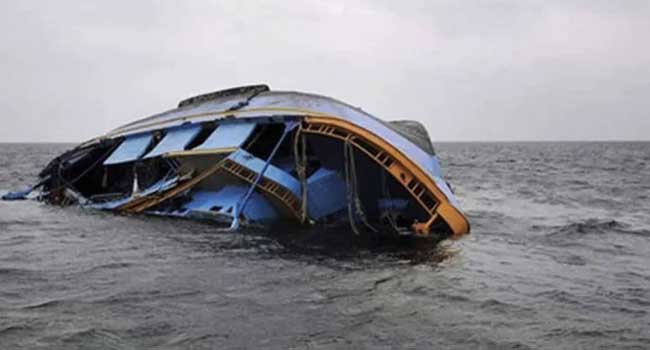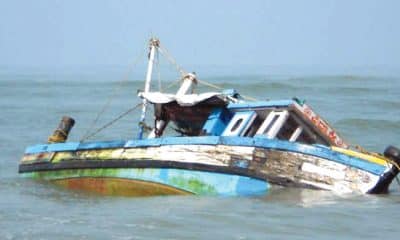Nigeria News
NIWA Reveals Cause Of Kwara Boat Accident

The National Inland Waterways Authority (NIWA) has revealed the cause of the Kwara boat tragedy where over 100 passengers died last week.
Naija News reported last week Tuesday that over 100 persons reportedly died, including a father and his four children in a boat accident at Egbu village, Patigi local government area of Kwara state.
According to sources who spoke with Daily Trust, the boat was returning from a wedding ceremony in a neighbouring Egboti village in Niger State when it hit a tree due to river waves.
It was gathered that the public relations officer of the Kwara State Police Command, Okasanmi Ajayi, confirmed the incident on Tuesday.
Following the incident, President Bola Tinubu called for a probe into the cause of the boat accident.
Giving details of the cause of the boat tragedy, NIWA said preliminary investigations reveal that the vessel was very “heavily overloaded carrying over 250 persons including luggage” and “the people were not wearing life jackets” as they travelled in the dead of the night at about 2:30 am.
The NIWA Managing Director, Dr George Moghalu, over the weekend in Ilorin, the Kwara State capital said all indicated persons would be punished
Moghalu, who led a delegation to make an on-the-spot assessment of the situation in Patigi communities, cited that there were instances where boat operators had been arrested, and sent to prisons, and their vessels were either impounded or destroyed when considered not river-worthy.
According to him, not all vessel operators were licensed or registered, noting that the investigation had shown that 90% of accidents on water occur either at night or very early in the morning.
The NIWA boss said “It was a rainy night. The rain came with wind. Apart from the rain increasing the water level, the wind was moving and forcing the both left and right and then smashed the boat against a tree. These are some of the issues that came out in the course of our preliminary investigations. Meanwhile, there is still a lot going on to forestall future occurrences.
“Most of these vessels don’t have night navigational aids, making the movement a risky venture. The vessel carried passengers five times more than what it should.”
He restated the organisation’s commitment to enforcing standard operating procedures with a set of operational guidelines, adding that it would use local enforcement agents, made up of youth, to enforce the guidelines set for security purposes at all times.
He added that “A team to assess the environmental impact assessment of the incident would come to the area in order to determine provision of either jetty or ramp to improve movement in the area. Part of our responsibility is to ensure the security and safety of the people.
“Part of the message to the people is that you cannot operate your vessel after 6:00 pm. The operational time is between 6:00 am and 6:00 pm. They should wear life jackets before entering any vessel. The vessel must not be overloaded. We would be using local media, traditional and religious institutions and community stakeholders to pass the message across to the people. We will also continue the training of operators to standardize operation all over the country.”










